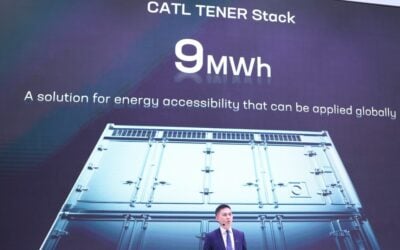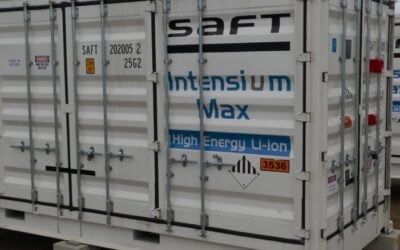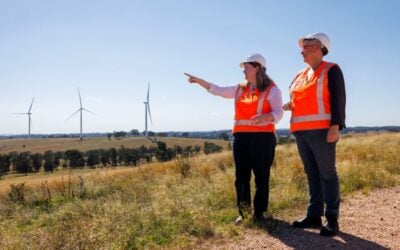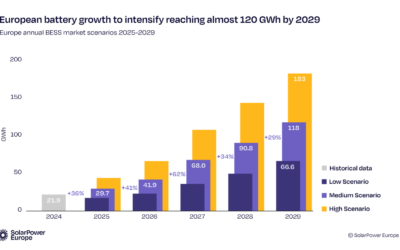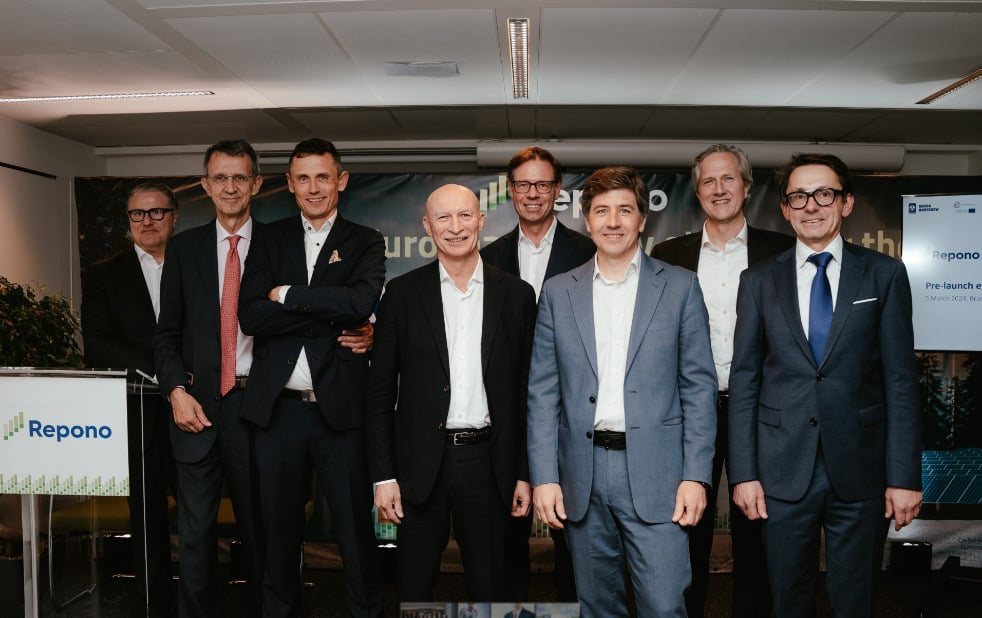
EU body EIT InnoEnergy has launched a new platform for owning and operating energy storage assets across Europe, called Repono, targeting a 10% market share of an expected 1TWh market by 2030.
EIT InnoEnergy, an innovation and investment body of the EU, announced the launch of Repono this morning (6 March). The company’s shareholders at launch, alongside EIT InnoEnergy, are:
Enjoy 12 months of exclusive analysis
- Regular insight and analysis of the industry’s biggest developments
- In-depth interviews with the industry’s leading figures
- Annual digital subscription to the PV Tech Power journal
- Discounts on Solar Media’s portfolio of events, in-person and virtual
Or continue reading this article for free
- French engineering and technology multinational Schneider Electric
- the energy division of French supermarket chain E.Leclerc (SIPLEC E.Leclerc)
- Nordic metals, chemicals and electronics firm Stena Metall
- Polish industrial and manufacturing conglomerate Boryszew Group
- German transportation and machinery manufacturing group NTM GmbH
Prior to its official launch, Repono agreed to acquire second-life energy storage firm BatteryLoop from Stena in November 2023 and BatteryLoop CEO Rasmus Bergstrom will now head up Repono as its CEO.
The acquisition means that Repono already has operational energy storage systems in the Nordics and a team of 25 employees.
Energy-Storage.news interviewed Bergstrom for a special feature into second-life energy storage for an edition of Solar Media’s quarterly journal PV Tech Power in late 2022.
The announcement did not specify what technologies Repono would prioritise for investment, but at the scale it is targeting it would obviously not be second-life energy storage (which involves repurposing used EV batteries into stationary energy storage systems).
Repono to benefit from EIT InnoEnergy’s network
Commenting on the launch of Repono, Bergstrom said the rapid deployment of intermittent renewables was putting the EU electricity system, which is designed for dispatchable resources, under immense stress, citing high energy prices, curtailment and power outages.
“Repono directly addresses these challenges by operating in three key areas,” Bergstrom explained.
“Firstly, it will strategically manage its storage capacities via short-term spot markets. Repono will monitor market fluctuations allowing it to buy, charge, sell and discharge at the right time with the aim to shift excess production to periods of excess demand.
“Secondly, Repono’s balancing services will be crucial to maintaining grid stability and preventing large-scale blackouts.”
“Lastly, by integrating energy storage into power purchase agreements between large
independent power producers and industrial companies, Repono will help to ensure a
reliable, 24/7 decarbonised electricity supply.”
Diego Pavia, CEO of EIT InnoEnergy, said that Repono would have access to EIT InnoEnergy’s 46+investments in the energy storage sector and the 800+ members in the European Battery Alliance (EBA), a trade body for the upstream battery sector managed by EIT InnoEnergy.
“These unique starting conditions will greatly de-risk Repono’s business and enable the
company to quickly replicate projects across Europe, doing its bit to accelerate the energy
and industrial transition,” Pavia added.
Part of EU’s goal to reach 42.5% renewable energy by 2030
The move is part of the EU bloc’s goal of reaching a renewable energy generation mix of 42.5% by 2030, which will require massive deployments of intermittent renewables and therefore energy storage to integrate them.
But many EU countries have seen major challenges to deploying the grid-scale energy storage needed. Italy, Greece, Spain and several others, particularly in the Central and Eastern Europe region, are using auction schemes which will provide capex and opex grants to energy storage on a long-term basis using EU funds.

